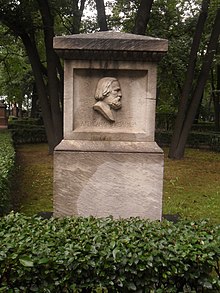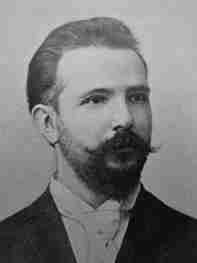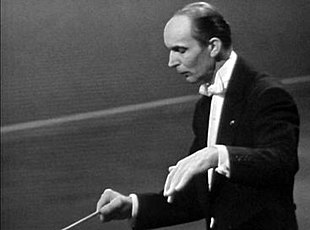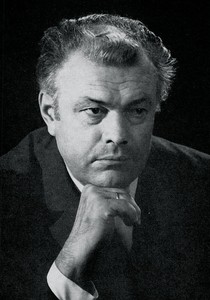
Janis Andreevich Ivanov (Jānis Ivanovs) |
Janis Ivanovs
Among the founders of Soviet symphony, one of the prominent places is rightfully occupied by Y. Ivanov. His name is associated with the formation and flourishing of the Latvian symphony, to which he devoted almost his entire creative life. Ivanov’s legacy is diverse in genre: along with symphonies, he created several program symphonic works (poems, overtures, etc.), 1936 concertos, 3 poems for choir and orchestra, a number of chamber ensembles (including 2 string quartets, a piano trio) , compositions for piano (sonatas, variations, cycle “Twenty-Four Sketches”), songs, film music. But it was in the symphony that Ivanov expressed himself most vividly and fully. In this sense, the creative personality of the composer is very close to N. Myaskovsky. Ivanov’s talent developed for a long time, gradually improving and discovering new facets. Artistic principles were formed on the basis of classical European and Russian traditions, enriched with national originality, reliance on Latvian folklore.
In the heart of the composer, his native Latgale, the land of blue lakes, where he was born into a peasant family, is forever imprinted. The images of the Motherland later came to life in the Sixth (“Latgale”) Symphony (1949), one of the best in his legacy. In his youth, Ivanov was forced to become a farm laborer, but thanks to hard work and dedication, he managed to enter the Riga Conservatory, from which he graduated in 1933 in the composition class with J. Vitols and in the conducting class with G. Shnefogt. The composer devoted a lot of energy to educational and pedagogical activities. For almost 30 years (until 1961) he worked on the radio, in the post-war period he headed the leadership of the republic’s music broadcasting. Ivanov’s contribution to the education of young composers in Latvia is invaluable. From his conservatory class, which he taught since 1944, many great masters of Latvian music came out: among them J. Karlsone, O. Gravitis, R. Pauls and others.
Ivanov’s entire life path was determined by the pathos of creativity, where his symphonies became the leading milestones. Like the symphonies of D. Shostakovich, they can be called the “chronicle of the era.” Often the composer introduces elements of programming into them – he gives detailed explanations (Sixth), titles to the cycle or its parts (Fourth, “Atlantis” – 1941; Twelfth, “Sinfonia energica” – 1967; Thirteenth, “Symphonia humana” – 1969), varies the genre appearance of the symphony (the Fourteenth, “Sinfonia da camera” for strings – 1971; the Thirteenth, on the st. Z. Purvs, with the participation of the reader, etc.), renews its internal structure. The originality of Ivanov’s creative style largely determines his broad melody, the origins of which lie in the Latvian folk song, but are also close to Slavic songwriting.
The symphonism of the Latvian master is multifaceted: like that of Myaskovsky, it combines both branches of the Russian symphony – epic and dramatic. In the early period, epic picturesqueness, lyrical genre prevail in Ivanov’s works, over time, his style is increasingly enriched by conflict, drama, reaching at the end of the path high simplicity and wise philosophy. The world of Ivanov’s music is rich and varied: here are pictures of nature, everyday sketches, lyrics and tragedy. A true son of his people, the composer wholeheartedly responded to their sorrows and joys. One of the most important places in the composer’s work is occupied by the civil theme. Already in 1941, he was the first in Latvia to respond to the events of the war with the symphony-allegory “Atlantis”, and later deepened this theme in the Fifth (1945) and especially in the Ninth (1960) symphonies. Ivanov also became a pioneer in the disclosure of the Leninist theme, dedicating the Thirteenth Symphony to the 100th anniversary of the leader. The composer has always had a sense of duty, a high responsibility for the fate of his people, whom he faithfully served not only with creativity, but also with his social activities. When on May 3, 1984, the composer’s Twenty-First Symphony, completed by Ivanov’s student J. Karlsons, was performed in Riga, it was perceived as a testament of a great artist, his last “sincere story about time and about himself.”
G. Zhdanova





